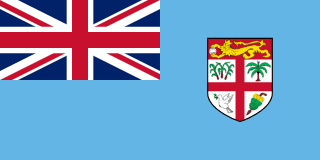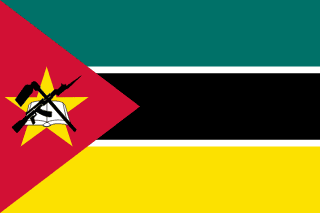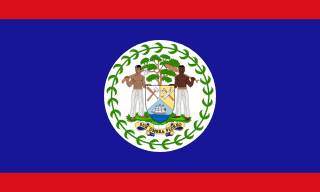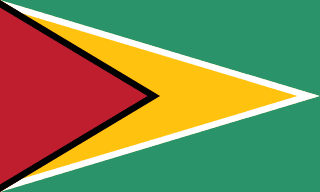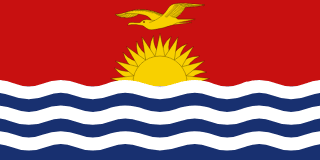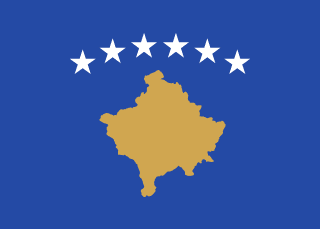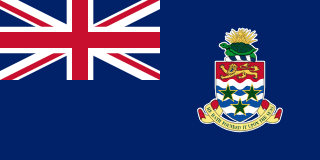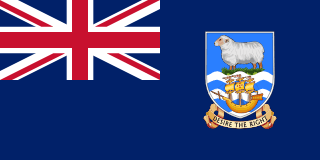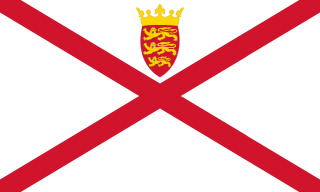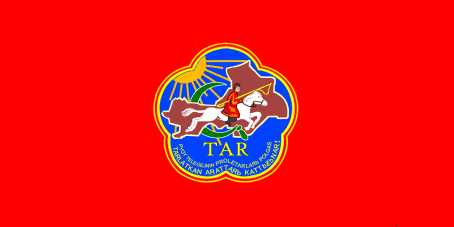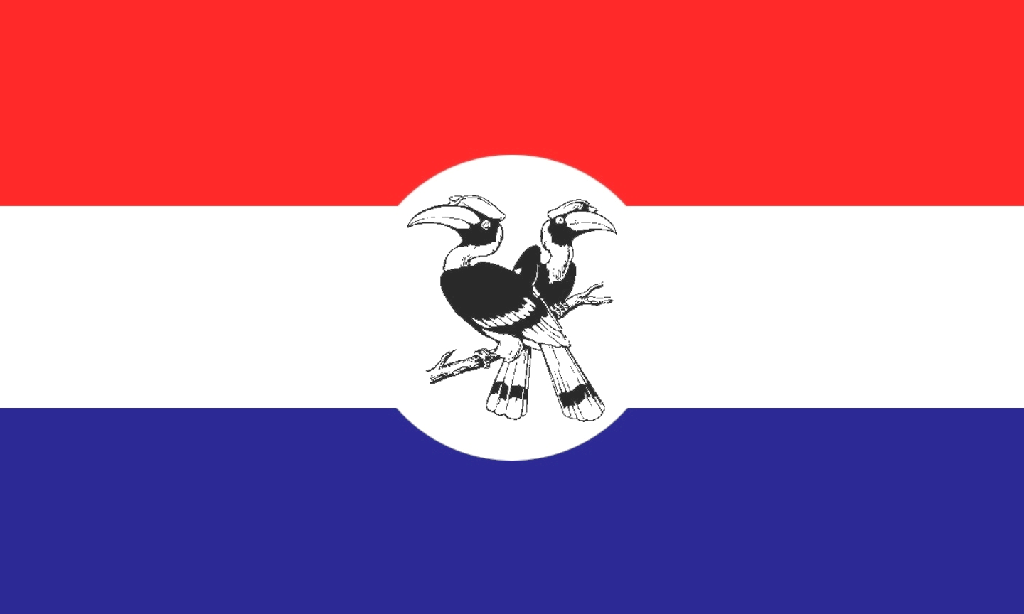Trade agreements of the European Union
Overview of trade agreements in the European Union
The European Union negotiates trade agreements on behalf of all of its member states, as the member states have granted the EU has an “exclusive competence” to conclude trade agreements. Even so, member states’ governments control every step of the process (via the Council of the European Union, whose members are national ministers from each national government):[1][2]
- Before negotiations start, member states’ governments (via the Council of Ministers) approve the negotiating mandate;
- During negotiations, member states’ governments are regularly briefed on the progress of negotiations and can update the negotiations mandate or suspend negotiations;
- Upon conclusion of negotiations, member states’ governments decide whether the agreement should be signed;
- After approval from the European Parliament and (in case the agreement covers areas other than trade such as investment protection) upon ratification in each member state parliament, member states’ governments decide whether the agreement should be concluded and enter into effect.
| State | No of jurisdictions represented[a] | Signed | Provisional application |
In force since | Notes | Relations |
|---|---|---|---|---|---|---|
| 1 | 2003 | 2004[3][b] | Customs union | |||
| 1 | 2006 | 2006[c] | 2009[4] | SAA | Negotiating for EU accession | |
| 1 | 2002 | 2005[5] | Euro-mediterranean AA | |||
| Andean Community |
3 | 2012[6] | 2013, 2017 | 2024[7][8] | FTA[9][10] | |
| 1 | 1990 | 1991[11] | Customs union | Andorra–EU relations | ||
| 1 | 2023 | 2024[12] | SIFA | |||
| 1 | 2021[13] | Comprehensive and Enhanced Partnership Agreement | ||||
| 1 | 1999[14] | Partnership and Cooperation Agreement | ||||
| 1 | 2008 | 2008[c] | 2015[15] | SAA | Candidate for EU accession | |
| Central America |
6 | 2012 | 2013 | 2024[16] | AA | Central America–European Union Association Agreement |
| 1 | 2002, 2023 | 2003, 2024 | 2005[17] 2025[18] | AA,[19] Interim & Updated EU-Chile AA | ||
| 1 | 2001 | 2004[20] | Euro-mediterranean AA | |||
| 1 | 1996 | 1997[21] | Autonomous entity of Denmark | Faroe Islands-EU relations | ||
| 1 | 2014 | 2014 | 2016[22] | AA incl DCFTA | Georgia–EU relations and Candidate for EU accession | |
| 1 | 1992 | 1994[23] | EEA | Iceland–EU relations | ||
| 1 | 2012 | 2018[24] | Partnership and Cooperation Agreement | |||
| 1 | 1995 | 1996[c][25] | 2000[26] | Euro-Mediterranean AA | Israel–EU relations | |
| 1 | 2018[27] | 2019[28] | Economic Partnership Agreement [29] | Japan-EU relations | ||
| 1 | 1997 | 2002[30] | Euro-Mediterranean AA | Jordan–EU relations | ||
| 1 | 2015 | 2020[31] | Enhanced Partnership and Cooperation Agreement (EPCA) | |||
| 1 | 2023 | 2024[14] | Economic Partnership Agreement | |||
| 1 | 2015 | 2016[32] | SAA | Potential candidate for EU accession | ||
| 1 | 2002 | 2006[33] | Euro-Mediterranean AA | Lebanon–EU relations | ||
| 1 | 1992 | 1995[23] | EEA | Liechtenstein–EU relations | ||
| 1 | 1997 | 2000[34] | FTA[35][36] | Mexico–EU relations | ||
| 1 | 2014 | 2014 | 2016[37] | Moldova–European Union Association Agreement incl European Union–Moldova Deep and Comprehensive Free Trade Area | Moldova–EU relations and Negotiating for EU accession | |
| 1 | 1958 | Franco-Monegasque Customs Convention (customs union)[38] | Monaco–EU relations | |||
| 1 | 2007 | 2008[c] | 2010[39] | SAA | Negotiating for EU accession | |
| 1 | 1996 | 2000[40] | Euro-Mediterranean AA | Morocco–EU relations | ||
| 1 | 2023 | 2024[41] | FTA | New Zealand–EU relations | ||
| 1 | 2001 | 2001[c] | 2004[42] | SAA | Negotiating for EU accession | |
| 1 | 1992 | 1994[23] | EEA | Norway–EU relations | ||
| 13 | 2001 | 2001[43][44] | Association of the OCTs with the EU | |||
| 1 | 1997 | 1997[45] | Euro-Mediterranean AA | Palestine–EU relations | ||
| 1 | 1991 | 1992[d] | 2002[46] | Customs union | San Marino–EU relations | |
| 1 | 2008 | 2010[c] | 2013[47] | SAA | Negotiating for EU accession | |
| 1 | 2018[48] | 2019[49] | FTA[50] | |||
| 1 | 1999 | 2000[51] | 2004[52] | ATDC[e] | South Africa–EU relations | |
| 1 | 2010 | 2011 | 2015[53] | FTA[54] | South Korea–EU relations | |
| 1 | 1972 | 1973[55] | Trade agreement | Switzerland–EU relations | ||
| 1 | 1977 | 1977 | Cooperation agreement (partially suspended in 2011)[56] | Syria–EU relations | ||
| 1 | 1995 | 1998[57] | Euro-Mediterranean AA | |||
| 1 | 1995[f] | 1995[58] | Customs union | Turkey–EU relations | ||
| 1 | 2014 | 2016 | 2017[59][60] | Ukraine–European Union Association Agreement incl DCFTA | Ukraine–EU relations and Negotiating for EU accession | |
| 1 | 2020 | 2021[61] | 2021[62] | Trade and Cooperation Agreement | United Kingdom–EU relations | |
| 1 | 2019 | 2020[63] | EVFTA[64] | Vietnam–EU relations |
| State | Signed | Provisional Application |
Ratification | Notes | Relations |
|---|---|---|---|---|---|
| 2009 | 2014 |
21 / 30
|
Interim agreement with a view to an EPA | ||
| 2016 | 2017[66] |
18 / 30
|
Comprehensive Economic and Trade Agreement[68] | ||
| CARIFORUM States |
2008 | 2008 |
37 / 44
|
EPA – Croatia acceded to the agreement on 28 November 2017 | |
| 2009 | 2016 |
24 / 30
|
Stepping Stone EPA | ||
| Eastern and Southern Africa States |
2009 | 2012, 2019 |
5 / 35
|
Interim Agreement for establishing a framework for an EPA | |
| 2016 | 2016[72] |
11 / 30
|
Stepping Stone EPA | ||
| Pacific States |
2009 | 2009, 2014, 2018, 2020 |
4 / 5
|
Interim Partnership Agreement | |
| South African Development Community members |
2016 | 2016 |
20 / 35
|
Economic Partnership Agreement |
| State | Negotiations Concluded | Signed | Provisional Application |
Ratification | Notes |
|---|---|---|---|---|---|
| December 2023 | No | No | Association Agreement[77] | ||
| 30 December 2020[78] | No | No | No | Comprehensive Agreement on Investment | |
| Economic Community of West African States members |
6 February 2014 | No | No | Economic Partnership Agreement[79] | |
| East African Community members |
16 October 2014 | No | Ratified by In force with |
Economic Partnership Agreement[80] | |
| 13 July 2025[81][82] | No | No | No | Indonesia–European Union Comprehensive Economic Partnership Agreement | |
| Mercosur |
28 June 2019[83] | No | No | No | European Union–Mercosur free trade agreement. Part of an Association Agreement. |
| 28 April 2020[84] | No | No | No | Updated Free Trade Agreement between Mexico and the European Union | |
| December 2024[85] | No | No | No | Enhanced Partnership and Cooperation Agreement[76] | |
| January 2024[85] | No | No | No | Enhanced Partnership and Cooperation Agreement[76] |
| State | New or modernized agreement being negotiated | Status |
|---|---|---|
| Australia Agreement | Negotiations launched in 2018[86] | |
| Eastern and Southern Africa States |
Economic Partnership Agreement | Negotiations on modernisation began in 2019[87] |
| Free Trade Agreement | Negotiations from 2007 to 2013;[88] restarted in 2022[89][90] | |
| Enhanced Partnership and Cooperation Agreement (EPCA) | Negotiations on adding a protocol to the EPCA regarding Geographical Indications (GIs) for agricultural products and foodstuffs, wines and spirits are ongoing[91] | |
| Economic Partnership Agreements as part of the Pacific States Interim Partnership Agreement | Informed the EU of its intention to accede to the EPA.[92] | |
| Free Trade Agreement | Negotiations launched in 2015[86] | |
| Digital Trade Agreement | Negotiations launched in July 2023[93] | |
| Economic Partnership Agreements as part of the Pacific States Interim Partnership Agreement | Informed the EU of its intention to accede to the EPA.[92] | |
| Free Trade Agreement | Negotiations started in 2013, paused in 2014, and resumed in 2023.[88] | |
| Economic Partnership Agreements as part of the Pacific States Interim Partnership Agreement | Informed the EU of its intention to accede to the EPA.[92] | |
| Economic Partnership Agreements as part of the Pacific States Interim Partnership Agreement | Informed the EU of its intention to accede to the EPA.[92] | |
| Economic Partnership Agreements as part of the Pacific States Interim Partnership Agreement | Informed the EU of its intention to accede to the EPA.[92] |
| Country or bloc | Agreement being negotiated | Status |
|---|---|---|
| Partnership and Cooperation Agreement | Negotiations on modernisation began in 2017, on hold since 2019[94] | |
| Cooperation Council for the Arab States of the Gulf States |
Free Trade Agreement | Negotiations started in 1990, suspended since 2008[88] |
| Central Africa |
Economic Partnership Agreement | Negotiations started in 2003, paused until further notice in 2011[88] |
| Eastern and Southern Africa States |
Economic Partnership Agreement | Negotiations started in 2004, paused until further notice in 2011[88] |
| Free Trade Agreement | Negotiations started in 2010, paused since 2012[88] | |
| European Union Association Agreement | Negotiations launched in 2015, but halted in 2023[95] | |
| Deep and Comprehensive Free Trade Area | Negotiations started in 2013, on hold since 2014 at Morocco’s request[96] | |
| Investment protection agreement | Negotiations launched in 2015[88] | |
| Deep and Comprehensive Free Trade Area | Negotiations launched in 2015, on hold since 2019[97] | |
| Transatlantic Trade and Investment Partnership | Negotiations started in 2013, suspended since 2019[88] |
| Country or bloc | Agreement | Signed | Active | Obsolete |
|---|---|---|---|---|
| SAA | 29 October 2001 | 1 March 2001 | 1 July 2013[98] |
The European Court of Justice has held that investor-state arbitration provisions (including a dedicated tribunal planned by some free trade agreements) falls under competency shared between European Union and its member states and that for this reason, the ratification of such mixed agreements[99] should be approved by the EU as well as by each of the union’s member states.[100] This court decision has resulted in a new architecture of external trade negotiations which will have two components:[101]
- a free trade agreement – related exclusively to trade matters – which can be adopted at the EU level;
- an investment agreement – containing investment, arbitration and other non-trade provisions – which needs to be ratified by the member states as well.
One study found that the trade agreements that the EU implemented over the period 1993-2013 have, on average, increased the quality of imported goods by 7% and therefore “lowered quality-adjusted prices by close to 7%,” without having much of an impact on the non-adjusted price.[102]
- Economic Partnership Agreements
- EU-ACP
- EUR.1 movement certificate
- Euro-Mediterranean free trade area
- European Union Association Agreement
- Everything but Arms
- Free trade agreements of the European Union
- Free trade agreements of the United Kingdom
- Free trade area
- Free trade areas in Europe
- List of bilateral free trade agreements
- List of free trade agreements
- List of the largest trading partners of the European Union
- Trade deal negotiation between the UK and EU (2020)
- Trade defence instrument
- United States free trade agreements
-
From 2021 under the provisions of the Brexit withdrawal agreement (Protocol relating to the sovereign base areas of the United Kingdom of Great Britain and Northern Ireland in Cyprus)
-
“Negotiations and agreements”. European Commission. Retrieved 10 July 2023.
-
“Agreements”. European Commission. Retrieved 17 March 2016.
-
“EUR-Lex – 12003T/PRO/03 – EN”. Official Journal L 236 , 23/09/2003 P. 0940 – 944. Retrieved 7 July 2023.
-
“Stabilisation and Association Agreement between the European Communities and their Member States, of the one part, and the Republic of Albania, of the other part”. Agreements Database, Council of the European Union. Retrieved 28 October 2015.
-
“Euro-Mediterranean Association Agreement between the European Community and its Members States, of the one part, and the People’s Democratic Republic of Algeria, of the other part”. Agreements Database, Council of the European Union. Retrieved 28 October 2015.
-
http://euobserver.com/9/32177 EU signs FTA
-
“Trade Agreement between the European Union and its Member States, of the one part, and Colombia and Peru, of the other part”. Agreements Database, Council of the European Union. Retrieved 17 July 2025.
-
“Agreement details”. Council of the European Union. Retrieved 26 October 2017.
-
http://en.mercopress.com/2013/08/03/eu-fta-agreements-with-colombia-and-central-america-became-effective-august-first EU FTA agreements with Colombia and Central America became effective August first
-
“Sustainable Investment Facilitation Agreement between the European Union and the Republic of Angola”. Agreements Database, Council of the European Union.
-
“EU Trade agreements”. policy.trade.ec.europa.eu. 2025-07-13. Retrieved 2025-07-17.
-
“EU Trade agreements”. policy.trade.ec.europa.eu. 2025-07-13. Retrieved 2025-07-19.
-
“Stabilisation and Association Agreement between the European Communities and their Member States, of the one part, and Bosnia and Herzegovina, of the other part”. Agreements Database, Council of the European Union. Retrieved 28 October 2015.
-
“Agreement establishing an Association between the European Union and its Member States, on the one hand, and Central America on the other”. Agreements Database, Council of the European Union. Retrieved 26 October 2017.
-
“Agreement establishing an Association between the European Community and its Member States, of the one part, and the Republic of Chile, of the other part”. Agreements Database, Council of the European Union. Retrieved 28 October 2015.
-
“Interim Agreement on Trade between the European Union and the Republic of Chile”. Agreements Database, Council of the European Union.
-
“Chile – Trade – European Commission”. ec.europa.eu. Retrieved 2015-06-15.
-
“Euro-Mediterranean Association Agreement between the European Communities and its Member States and the Arab Republic of Egypt”. Agreements Database, Council of the European Union. Retrieved 28 October 2015.
-
“Association Agreement between the European Union and the European Atomic Energy Community and their Member States, of the one part, and Georgia, of the other part”. Agreements Database, Council of the European Union. Retrieved 28 October 2015.
-
“Agreement on the European Economic Area”. Agreements Database, Council of the European Union. Retrieved 29 October 2015.
-
“EU and Japan sign Economic Partnership Agreement”. Trade – European Commission. Retrieved 2018-07-17.
-
“EU-Japan trade agreement will enter into force on 1 February 2019”. 2018-12-21.
Today, the EU and Japan notified each other of the completion of their respective ratification procedures.
-
“Economic Partnership Agreement between the European Union and Japan”. Agreements Database, Council of the European Union.
-
“Euro-Mediterranean Agreement establishing an Association between the European Communities and their Member States, of the one part, and the Hashemite Kingdom of Jordan, of the other part”. Agreements Database, Council of the European Union. Retrieved 28 October 2015.
-
“Euro-Mediterranean Agreement establishing an Association between the European Community and its Members States, of the one part, and the Republic of Lebanon, of the other part”. Agreements Database, Council of the European Union. Retrieved 28 October 2015.
-
“Stabilisation and Association Agreement between the European Communities and their Member States, of the one part, and the former Yugoslav Republic of Macedonia, of the other part”. Agreements Database, Council of the European Union. Retrieved 28 October 2015.
-
“Mexico – Trade – European Commission”. ec.europa.eu. Retrieved 2015-06-15.
-
“Association Agreement between the European Union and the European Atomic Energy Community and their Member States, of the one part, and Moldova, of the other part”. Agreements Database, Council of the European Union. Retrieved 28 October 2015.
-
“Monaco and the European Union”. Gouvernement Princier. Retrieved 31 January 2021.
-
“Stabilisation and Association Agreement between the European Communities and their Member States of the one part, and the Republic of Montenegro, of the other part”. Agreements Database, Council of the European Union. Retrieved 28 October 2015.
-
“Agreement details”. Council of the European Union. Retrieved 7 August 2013.
-
“Free Trade Agreement between the European Union and New Zealand”. Agreements Database, Council of the European Union. Retrieved 1 May 2024.
-
“Stabilisation and Association Agreement between the European Communities and their Member States, of the one part, and the former Yugoslav Republic of Macedonia, of the other part”. Agreements Database, Council of the European Union. Retrieved 28 October 2015.
-
“Euro-Mediterranean Interim Association Agreement on Trade and Cooperation between the European Community, of the one part, and the Palestine Liberation Organization (PLO) for the benefit of the Palestinian Authority of the West Bank and the Gaza Strip, of the other part”. Agreements Database, Council of the European Union. Retrieved 28 October 2015.
-
“Stabilisation and Association Agreement between the European Communities and their Member States, of the one part, and the Republic of Serbia, of the other part”. Agreements Database, Council of the European Union. Retrieved 28 October 2015.
-
“Singapore, EU ink landmark free trade agreement”. www.channelnewsasia.com. Archived from the original on 31 August 2019. Retrieved 2018-12-21.
[…] the EU-Singapore Free Trade Agreement (EUSFTA) was signed by Prime Minister Lee Hsien Loong with European Commission president Jean-Claude Juncker, European Council president Donald Tusk and Austrian Chancellor Sebastian Kurz. […] The leaders also witnessed the signing of the EU-Singapore Investment Protection Agreement (EUSIPA) – a pact that will replace 12 existing bilateral investment treaties between Singapore and EU member states to offer better investment protection – and the EU-Singapore Partnership and Cooperation Agreement (ESPCA).
-
“Council Decision on the conclusion of the Free Trade Agreement between the European Union and the Republic of Singapore”.
[…] the Agreement should enter into force on 21 November 2019 in agreement with the Singaporean side
-
“Free Trade Agreement between the European Union and the Republic of Singapore”. Agreements Database, Council of the European Union. Retrieved 2018-10-29.
-
-
“Agreement on Trade, Development and Cooperation between the European Community and its Member States, on the one part, and the Republic of South Africa, on the other part”. Agreements Database, Council of the European Union. Retrieved 28 October 2015.
-
“Free Trade Agreement between the European Union and its Member States, of the one part, and the Republic of Korea, of the other part”. Agreements Database, Council of the European Union. Retrieved 28 October 2015.
-
“EUR-Lex – L:2011:127:TOC – EN – EUR-Lex”. eur-lex.europa.eu. Retrieved 2015-06-15.
-
“Trade agreement details”. Council of the European Union. Retrieved 17 January 2016.
-
“EU – Syrian Arab Republic”. World Trade Organization. Archived from the original on 24 June 2025. Retrieved 30 June 2025.
-
“Euro-Mediterranean Agreement establishing an Association between the European Communities and their Member States, of the one part, and the Republic of Tunisia, of the other part”. Agreements Database, Council of the European Union. Retrieved 29 October 2015.
-
“Delegation of the European Union to Türkiye | EEAS”. www.eeas.europa.eu. Retrieved 7 July 2023.
-
“Association Agreement between the European Union and the European Atomic Energy Community and their Member States, of the one part, and Ukraine, of the other part”. Agreements Database, Council of the European Union. Retrieved 29 October 2015.
-
“EU-UK Trade and Cooperation Agreement: Council adopts decision on the signing”. Consilium. 29 December 2020.
-
“Free Trade Agreement between the European Union and the Socialist Republic of Viet Nam”. Agreements Database, Council of the European Union. Retrieved 2019-07-02.
-
“Agreement details”. Council of the European Union. Retrieved 26 October 2017.
-
“Canada, EU to provisionally apply CETA in September”. CBC News. 8 July 2017. Retrieved 18 July 2017.
-
“Comprehensive Economic and Trade Agreement (CETA) between Canada, of the one part, and the European Union and its Member States, of the other part”. Agreements Database, Council of the European Union.
-
“Economic Partnership Agreement between the CARIFORUM States, of the one part, and the European Community and its Member States, of the other part”. Agreements Database, Council of the European Union. Retrieved 26 October 2017.
-
“Agreement details”. Council of the European Union. Retrieved 26 October 2017.
-
“Interim Agreement establishing a framework for an Economic Partnership Agreement between the Eastern and Southern Africa States, on the one part, and the European Community and its Member States, on the other part”. Agreements Database, Council of the European Union. Retrieved 26 October 2017.
-
“Agreement details”. Council of the European Union. Retrieved 26 October 2017.
-
“Agreement details”. Council of the European Union. Retrieved 26 October 2017.
-
“Agreement details”. Council of the European Union. Retrieved 26 October 2017.
-
“EU Trade agreements”. policy.trade.ec.europa.eu. 2025-07-13. Retrieved 2025-07-17.
-
“Commission proposes Association Agreement with Andorra and San Marino to the Council”. European Commission. 26 April 2024. Retrieved 9 May 2024.
-
“EU-China Comprehensive Agreement on Investment”. Archived from the original on 5 Jul 2025. Retrieved 11 May 2022.
-
“West Africa – Trade – European Commission”. ec.europa.eu. Retrieved 2021-01-03.
-
“East African Community (EAC) – Trade – European Commission”. ec.europa.eu. Retrieved 2021-01-03.
-
“EU, Indonesia strike political agreement to advance free trade deal”. Reuters. 2025-07-13. Retrieved 2025-07-14.
-
“Statement by President von der Leyen with President Subianto of the Republic of Indonesia”. European Commission. 2025-07-13. Retrieved 2025-07-14.
-
“EU and Mercosur agree huge trade deal after 20-year talks”. BBC News. 2019-06-28. Retrieved 2021-01-03.
-
“Press corner”. European Commission – European Commission. Retrieved 2022-12-03.
-
“EU trade relations with Central Asia”. policy.trade.ec.europa.eu. 2021-04-09. Retrieved 2025-07-27.
-
“Agreements being negotiated”. European Commission. Retrieved 31 January 2021.
-
“EU Trade agreements”. policy.trade.ec.europa.eu. 2025-07-13. Retrieved 2025-07-17.
-
“Agreements on hold”. European Commission. Retrieved 31 January 2021.
-
Brzozowski, Alexandra; Allenbach-Ammann, János (2022-06-10). “EU and India to start trade negotiations, with 2024 target”. www.euractiv.com. Retrieved 2022-07-01.
-
Directorate-General for Trade (17 June 2022). “EU and India kick-start ambitious trade agenda”. policy.trade.ec.europa.eu. Retrieved 2022-07-01.
-
“EU Trade agreements”. policy.trade.ec.europa.eu. 2025-07-13. Retrieved 2025-07-17.
-
“EU Trade agreements”. policy.trade.ec.europa.eu. 2025-07-13. Retrieved 2025-07-17.
-
“EU Trade agreements”. policy.trade.ec.europa.eu. 2025-07-13. Retrieved 2025-07-17.
-
“Countries and regions: Morocco”. European Commission. Retrieved 31 January 2021.
-
“Countries and regions: Tunisia”. European Commission. Retrieved 31 January 2021.
-
“EU – Croatia”. World Trade Organization.
-
“EU Trade Agreements: To Mix or not to Mix, That is the Question” (PDF). Archived from the original (PDF) on 2021-01-09.
-
“EU trade agreements – New architecture of trade agreements”. Retrieved 11 May 2022.
-
Berlingieri, Giuseppe; Breinlich, Holger; Dhingra, Swati (2018-03-12). “The consumer benefits of trade agreements: Evidence from the EU trade policy”. VoxEU.org. Retrieved 2018-03-12.
- Negotiations and agreements, EU trade relationships by country/region, European Commission
- Trade Flows, Animated infographics, European Parliamentary Research Service
- Articles on EU FTAs, at Agritrade
- The Transatlantic Colossus: Global Contributions to Broaden the Debate on the EU-US Free Trade Agreement A collaborative publication with over 20 articles on the global implications of the TAFTA | TTIP
- Koeth, Wolfgang (8 December 2014) “The Deep and Comprehensive Free Trade Agreements: an Appropriate Response by the EU to the Challenges in its Neighbourhood”?
Source: Wikipedia. License: CC BY-SA 4.0. Changes may have been made. See authors on source page history.
Terkait
Eksplorasi konten lain dari Tinta Emas
Berlangganan untuk dapatkan pos terbaru lewat email.


























